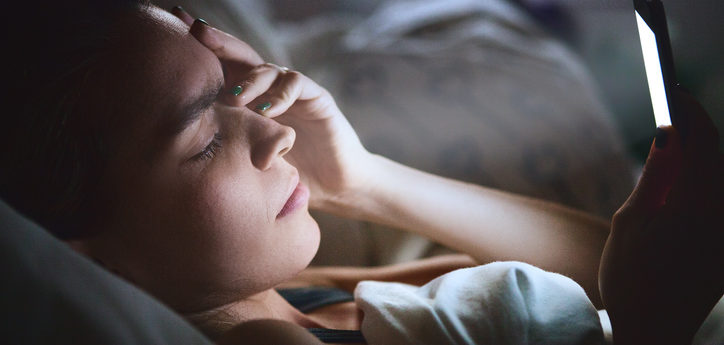We all want to perform our best. Whether at work, school, sports or life in general, we have expectations we’re trying to meet on a daily basis.
But our best laid plans unravel quickly when we constantly feel tired. The stronger the fatigue, the less we get done.
Following this logic, it stands to reason that if we get better sleep we’ll feel more energized and productive. But therein lies the problem for many of us. How do we get better sleep? According to the CDC, 35% of American adults do not get enough sleep at night. The solution for some is as easy as going to bed earlier, but the reality for the rest of us is not as simple. There are typically two camps that we fall into:
- Falling asleep is difficult and the more we toss and turn, the harder it becomes to doze off.
- We fall asleep ok, but we have a hard time staying asleep as we wake up multiple times throughout the night, disrupting the REM cycle in the process.
If either of these patterns describe your nightly sleep, you could be suffering from a melatonin production issue. Melatonin–the hormone our brains produce to help us sleep–is intended to be produced on a schedule. This schedule is dictated by our natural environment, primarily lighting. In the days before electricity, melatonin production would ramp up when the sun began setting and taper off in the morning when it received its signal from the rising sun.
This consistent daily pattern is still the way our brains are wired, but our modern lifestyles have thrown a wrench into the equation. Now, instead of the sun (and fire) as our only light source, we have indoor lighting, LEDs, and digital devices all emitting light of varying wavelengths around the clock. If we don’t monitor our behavior, it’s possible to spend every waking second of our day bathed in light. And our brains don’t like that. Here’s why:
Blue light is a color in the visible light spectrum that can be seen by human eyes. It is a short wavelength, which means it produces higher amounts of energy. And blue light is everywhere in our world. It used to be that the only source of blue light was from the sun, but now our phones, laptops, TVs and gaming systems all emit it at high levels.
So, if you’re one of the millions spending their evenings and nights streaming shows, playing on your phone or working on your computer, you’re basically setting yourself up for a poor night of sleep. All that time spent under the glare of blue light is signaling to your brain to hold off on producing melatonin.
The good news is you don’t need to radically change your evening routine. We recommend wearing your BluTech lenses after dark to protect yourself from blue light and allow your brain to begin the melatonin production process as nature intended. For added protection, it’s generally a good idea to turn the screens off one hour before bed as well.
Try these two small changes and watch what happens to your quality of sleep. You may be surprised at how quickly your daily fatigue becomes a thing of the past.To learn more about BluTech’s patented blue light protection lenses, click here.
Find BluTech Near You




